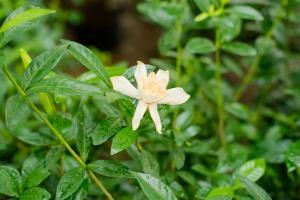Introduction
Plant growth is a complex process that relies on several factors, including soil quality, sunlight, water, and temperature. Out of these, temperature is an important factor that plays a crucial role in determining the growth and development of a plant. In this article, we will discuss how water temperature affects plant growth.
Effects of Water Temperature on Plant Growth
Water temperature has a significant impact on plant growth. When plants are exposed to water at optimal temperature, it can aid in the absorption of nutrients and minerals, which are essential for their growth. Cooler water temperatures can reduce nutrient uptake, resulting in slower plant growth, while hot water can scorch and damage the plants, eventually leading to their death.
Optimal Water Temperature for Plant Growth
Different plants have different water temperature requirements for optimal growth. For example, tropical plants prefer warmer water, while plants that grow in colder climates do better in cooler water. In general, the optimal temperature range for most plants is between 20-25 degrees Celsius. However, this can vary depending on the type of plant and the stage of growth.
Impacts of Cold Water Temperature
Cold water temperature can hinder plant growth in several ways. For instance, plants require warmth to carry out photosynthesis, which is a process that creates food for the plant. Cold water can slow down the photosynthesis process, resulting in slower plant growth. Moreover, it can also reduce the metabolic activity of the plant, interfering with nutrient uptake and reducing the efficiency of the plant's respiratory system.
Impacts of Hot Water Temperature
Hot water can damage plants in different ways, depending on the plant type and water temperature. For example, if the water temperature is too high, it can cause the plants to wilt or worse, scorch the leaves, and stems, leading to plant death. Also, if the water temperature is too high or too low, it can alter the PH balance of the soil, making it more difficult for plants to absorb nutrients from the soil.
Benefits of Using Water with Optimal Temperature
Using water at optimal temperatures can provide several benefits to plants, including faster growth, better resistance to diseases, and increased productivity. Water at optimal temperatures ensures that the plants have access to essential minerals and nutrients, which in turn supports their development and helps them reach maturity quickly. Also, plants that are watered with optimal temperature water have a better chance of resisting diseases, insect attacks, and environmental stressors.
Conclusion
Water temperature has a significant impact on plant growth, and it's important to understand how different temperatures can affect the development and health of plants. By ensuring that water temperatures are optimal, you can help ensure that plants have the nutrients, minerals, and warmth they need to grow quicker, resist diseases, and thrive. By keeping a close eye on water temperatures and choosing the optimal temperatures, you can help maximize the yield of your garden and help your plants reach their full potential.

 how many times do yo...
how many times do yo... how many planted tre...
how many planted tre... how many pine trees ...
how many pine trees ... how many pecan trees...
how many pecan trees... how many plants comp...
how many plants comp... how many plants can ...
how many plants can ... how many plants and ...
how many plants and ... how many pepper plan...
how many pepper plan...































